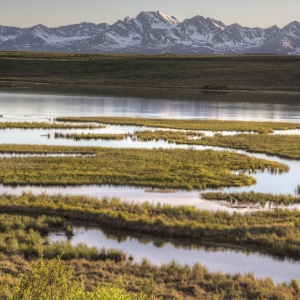The Stream, May 20, 2021: Drought Expected To Cut Brazilian Ag Exports
YOUR GLOBAL RUNDOWN
- Drought in Brazil could affect the country’s coffee and orange exports for the second year in a row.
- The closure of border crossings into Gaza cuts off aid and exposes displaced Palestinians to water-borne illness.
- A pilot program in New Mexico pays farms to conserve groundwater.
- New research finds climate change increased economic losses after Hurricane Sandy.
Heavy rain causes flooding throughout Louisiana.
“We will continue to be resilient through this event. But I will admit it would be nice if Mother Nature would give us a break.” – Nic Hunter, the mayor of Lake Charles, Louisiana. Heavy rain caused flooding throughout parts of Louisiana this week, the Associated Press reports. In Lake Charles, located in the western region of the state, the National Weather Service reported 12 to 15 inches of rain in a 12-hour period. Southwestern Texas and parts of Arkansas are also experiencing extreme rain.
IN RECENT WATER NEWS
In Case You Missed It:
Green Infrastructure: Cities Around the Great Lakes Plan for a Changing Future – Cities around the Great Lakes basin are increasing turning to green stormwater infrastructure to ease the burden on their wastewater infrastructure and improve water quality. This story was originally published by Great Lakes Now as part of the Great Lakes News Collaborative.
HotSpots H2O: Amid American West Megadrought, Montana’s Reservoirs Are Running Dry – The pain of extreme megadrought in the American West is being felt in Montana, where officials worry that a historically dry spring will shrink the state’s agricultural yield and increase the risk of summer wildfires.
Israel Cuts Off Aid Into Gaza, Increasing Risk for Water-Borne Illness
Israel has closed border crossings into Gaza, cutting off essential aid, Al Jazeera reports. The United Nations reported on Tuesday that over 52,000 Palestinians were displaced by Israeli airstrikes. The closure of borders has resulted in a severe shortage of medical supplies and puts thousands at risk for water-borne diseases, a spokesperson for the World Health Organization said.
TODAY’S TOP WATER STORIES, TOLD IN NUMBERS
2 DOZEN FARMS
A pilot project that will pay farmers to not plant their fields to conserve water has attracted over two dozens farms, the Associated Press reports. The contracts total more than $900,000 and cover just over two square miles of farmland. The program will pay farmers between $400 and $800 per acre to stop pumping groundwater for one year.
- Why it matters: During past droughts, groundwater pumping has saved farmers from losing their crops. Most farmers in the state’s Elephant Butte Irrigation District have wells. In 2012, farmers with groundwater rights were allowed to apply 3.4 meters per hectare (4.5 feet per acre), surface water and groundwater combined. With a 383-millimeter (6-inch) surface allocation, almost 90 percent of the irrigation water came from aquifers.
13 PERCENT
Climate change increased economic losses from Hurricane Sandy by at least 13 percent, a new study in Nature Communications found. The study found that climate-related sea level rise was responsible for more than $8 billion in losses in New York, New Jersey, and Connecticut.
- Why it matters: In 2015, legislators and water utilities started toying with the idea of “resiliency” to climate disasters. Superstorm Sandy made such thinking relevant at the national level.
ON THE RADAR
Drought in Brazil could affect global exports of coffee, sugar, and orange juice, Bloomberg reports. Farmers have expressed concerns about their ability to keep their crops alive as the country enters the dry months after a subpar rainy season. If areas that are irrigated can’t receive enough water, Brazil’s coffee and orange output may decline for the second consecutive year.
Jane is a Communications Associate for Circle of Blue. She writes The Stream and has covered domestic and international water issues for Circle of Blue. She is a recent graduate of Grand Valley State University, where she studied Multimedia Journalism and Women, Gender and Sexuality Studies. During her time at Grand Valley, she was the host of the Community Service Learning Center podcast Be the Change. Currently based in Grand Rapids, Michigan, Jane enjoys listening to music, reading and spending time outdoors.






Leave a Reply
Want to join the discussion?Feel free to contribute!